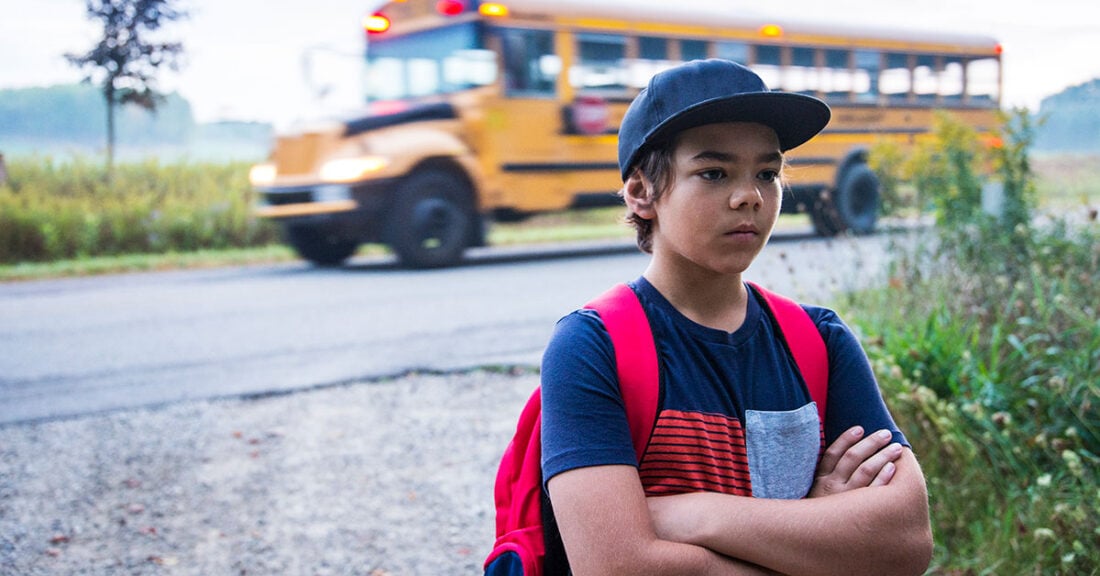What Are Status Offenses and Why Do They Matter?

Nearly 100,000 young people are drawn into the juvenile justice system each year for status offenses. Status offenses — behavior such as truancy, running away and curfew violations — are not crimes, but they are prohibited under the law because of a youth’s status as a minor. While status offenses are not serious offenses, they can have serious consequences for youth.
What are status offenses?
The five most common juvenile status offense examples include:
- skipping school,
- drinking while underage;
- running away;
- violating curfew; and
- acting out (also known as ungovernability, incorrigibility or being beyond the control of one’s parents).
Most youths who engage in status and other minor offenses never progress to more serious behavior, according to a 2015 literature review by the federal Office of Juvenile Justice Delinquency and Prevention. This kind of behavior can be a normal part of adolescent development, per the Vera Institute of Justice’s Status Offense Reform Center. But, for some young people, it can signal underlying problems at home or in school that need closer attention.
Do young people go to court for juvenile status offenses?
In some jurisdictions, status offense cases are referred to social service agencies or family crisis units that can offer young people guidance and support. Other jurisdictions rely on the juvenile justice system, despite evidence that punitive responses to these types of behaviors are ineffective. In 2016, the most recent year for which national data is available, 94,700 status offense cases were handled by U.S. courts. During this year, juvenile probation was the most common sanction ordered by the court for status offense cases.
What’s the best response to young people with status offenses?
The Annie E. Casey Foundation makes the case for addressing predictable adolescent misbehavior outside of the court system in its report Transforming Juvenile Probation: A Vision for Getting It Right. Young people with status offenses should be held accountable for their misbehavior by parents, teachers and others in the community without resorting to legal sanctions, court oversight or the threat of confinement. This is known as diversion.
“Young people should never be adjudicated or formally processed for status offenses,” says Steve Bishop, a senior associate at the Foundation. “They fall safely below the threshold of cases that should be formally processed — a group that should be limited to young people with a history of serious or chronic offending who pose a significant risk to public safety.”
What’s the worst that can happen to juvenile status offenders?
Since 1974, the federal Juvenile Justice and Delinquency Prevention Act has discouraged states from placing youth with juvenile status offenses in secure detention or locked confinement. States that do hold large numbers of these youths in secure detention risk losing a significant portion of their juvenile justice block grant awards. This part of the federal act — known as the deinstitutionalization of status offenders core requirement — is meant to encourage states to divert youth with status offenses away from the juvenile justice system toward more therapeutic community-based programs.
Despite these cautions, more than 2,200 young people with status offenses were ordered to out-of-home placement — such as youth prisons, secure residential treatment centers or group homes — in 2016. Youth of color were disproportionately confined for status offenses during this time. They represented 46% of the total youth population in 2016, yet accounted for 53% of the young people confined by courts for status offenses.
“The best thing we can do for teenagers doing things like staying out late and drinking beer is let them, or help them, mature without being pulled into the justice system,” says Bishop. “Young people who get locked up for normal teenage behavior often end up worse off than if the system hadn’t gotten involved in the first place. That’s because confinement disrupts positive connections to families and schools and the usual guidance, education and support networks that could keep them on the right track.”





